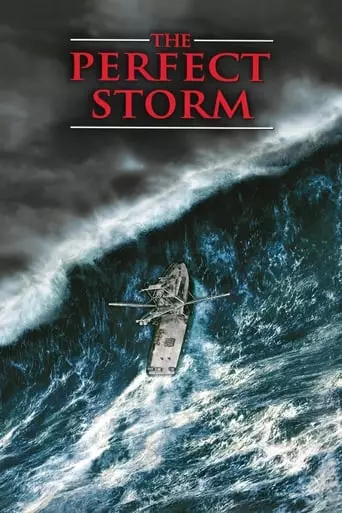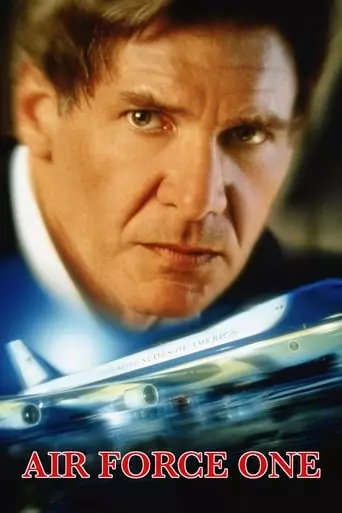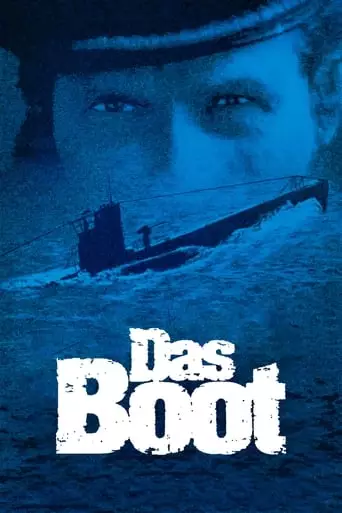In October 1991, a confluence of weather conditions combined to form a killer storm in the North Atlantic. Caught in the storm was the sword-fishing boat Andrea Gail. The Perfect […]

In October 1991, a confluence of weather conditions combined to form a killer storm in the North Atlantic. Caught in the storm was the sword-fishing boat Andrea Gail. The Perfect […]

When Russian neo-nationalists hijack Air Force One, the world’s most secure and extraordinary aircraft, the President is faced with a nearly impossible decision to give in to terrorist demands or […]

A soldier from Earth crashlands on an alien world after sustaining battle damage. Eventually he encounters another survivor, but from the enemy species he was fighting; they band together to […]

In year 1250 B.C. during the late Bronze age, two emerging nations begin to clash. Paris, the Trojan prince, convinces Helen, Queen of Sparta, to leave her husband Menelaus, and […]

Veteran Secret Service agent Frank Horrigan is a man haunted by his failure to save President Kennedy while serving protection detail in Dallas. Thirty years later, a man calling himself […]

While hiding from bullies in his school’s attic, a young boy discovers the extraordinary land of Fantasia, through a magical book called The Neverending Story. The book tells the tale […]

A German submarine hunts allied ships during the Second World War, but it soon becomes the hunted. The crew tries to survive below the surface, while stretching both the boat […]
Wolfgang Petersen: The Maestro of Epic Storytelling
Wolfgang Petersen was a visionary filmmaker whose career spanned five decades, marked by a mastery of crafting both intimate dramas and sprawling blockbusters. Renowned for his ability to merge technical brilliance with emotional depth, Petersen directed some of the most iconic films in cinematic history, including Das Boot (1981), The NeverEnding Story (1984), and Air Force One (1997).
Petersen’s ability to handle diverse genres—from war dramas to fantasy, thrillers, and disaster films—solidified his reputation as one of the most versatile directors of his era.
Early Life and Career
Wolfgang Petersen was born on March 14, 1941, in Emden, Germany. His passion for filmmaking began in his teenage years, when he started directing amateur films. He later attended the Berlin Film and Television Academy (Deutsche Film- und Fernsehakademie Berlin), where he honed his craft and developed a keen understanding of storytelling and technical filmmaking.
Petersen’s early career began in German television, directing several episodes of the popular crime series Tatort. These projects showcased his ability to balance narrative complexity with emotional authenticity, paving the way for his transition to feature films.
Breakthrough: Das Boot
Petersen’s international breakthrough came with Das Boot (1981), a gripping submarine drama based on Lothar-Günther Buchheim’s novel. The film follows the crew of a German U-boat during World War II, capturing the claustrophobic tension and moral ambiguity of warfare.
Praised for its meticulous attention to detail and emotional resonance, Das Boot earned six Academy Award nominations, including Best Director and Best Adapted Screenplay. It remains one of the most acclaimed war films ever made, with its technical achievements, such as the innovative use of Steadicam, influencing filmmakers worldwide.
Transition to Hollywood
Following the success of Das Boot, Petersen transitioned to Hollywood, where he became known for his ability to helm high-concept blockbusters with universal appeal.
Notable Films:
The NeverEnding Story (1984): Petersen brought Michael Ende’s beloved fantasy novel to life with groundbreaking special effects and a deeply emotional core. The film became a childhood classic, celebrated for its imaginative world and timeless themes of hope and perseverance.
In the Line of Fire (1993): A taut political thriller starring Clint Eastwood as a Secret Service agent haunted by past failures, this film showcased Petersen’s knack for creating tension while delivering compelling character arcs.
Outbreak (1995): Petersen directed this medical disaster thriller about a viral epidemic, starring Dustin Hoffman, Rene Russo, and Morgan Freeman. The film resonated with audiences for its gripping depiction of a global health crisis.
Air Force One (1997): A high-octane political action thriller featuring Harrison Ford as a heroic U.S. president battling hijackers. The film became a box-office smash and a staple of the action genre.
The Perfect Storm (2000): Based on a true story, this maritime disaster film starred George Clooney and Mark Wahlberg. Petersen’s use of CGI to depict the catastrophic storm was groundbreaking, earning the film critical acclaim for its visual effects.
Troy (2004): A sweeping epic inspired by Homer’s Iliad, this film featured Brad Pitt as Achilles and explored themes of honor, love, and destiny. Petersen’s direction captured the grandeur of ancient warfare while delving into the personal struggles of its characters.
Themes and Style
Petersen’s films often explore themes of survival, courage, and the human spirit’s resilience in the face of adversity. His direction is marked by:
Technical Precision: Petersen was known for his meticulous attention to detail, whether recreating the confined quarters of a submarine in Das Boot or the chaotic seas in The Perfect Storm.
Emotional Engagement: Even in action-packed narratives, Petersen prioritized character development, ensuring audiences were emotionally invested in the stakes.
Mastery of Scale: From the fantastical landscapes of The NeverEnding Story to the epic battles of Troy, Petersen excelled in creating immersive cinematic worlds.
Later Career
In his later years, Petersen directed Poseidon (2006), a modern retelling of the disaster classic The Poseidon Adventure. Although it received mixed reviews, the film demonstrated Petersen’s enduring commitment to pushing the boundaries of visual effects and large-scale storytelling.
Following Poseidon, Petersen largely stepped back from Hollywood, focusing on projects in Germany and enjoying a quieter life.
Legacy
Wolfgang Petersen passed away on August 12, 2022, at the age of 81. His legacy is defined by his ability to craft films that resonated with audiences across the globe.
Petersen’s work continues to inspire filmmakers and viewers alike, demonstrating the power of cinema to transport, thrill, and move us. Whether capturing the harrowing realities of war or the boundless imagination of a child, Petersen’s films remind us of the enduring strength of the human spirit.
Conclusion
Wolfgang Petersen’s career was a testament to the transformative power of storytelling. With his unique ability to balance spectacle with heart, Petersen created films that transcended genres and borders, leaving an indelible mark on the world of cinema.
Through his work, Petersen invited audiences to embark on unforgettable journeys—into the depths of the ocean, the heights of fantasy, and the core of human emotion. His contributions will continue to echo in the annals of filmmaking for generations to come.